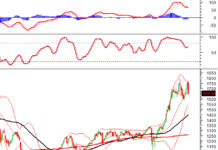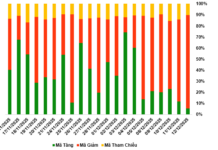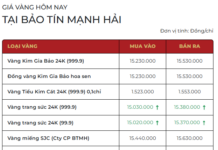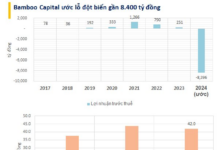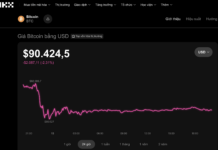On the morning of December 5th, the VietTimes Electronic Magazine, in collaboration with the Café Số Club (Vietnam Digital Communications Association), organized a workshop on “Building Sustainable Financial Groups in Vietnam” in Hanoi.
At the workshop, experts opined that the ownership ratio in commercial banks is a crucial factor in ensuring transparency and preventing manipulation of the financial market. However, in reality, many organizations and individuals still try to circumvent these limits through intricate maneuvers. Unless decisive actions are taken, legal loopholes and cross-ownership will continue to be a significant bottleneck in Vietnam’s banking system.
According to experts, the 2024 Law on Credit Institutions has many positive aspects, especially regarding enhanced transparency and control. However, implementing this law will face challenges without synchronous administrative and legal reforms and improved supervision and inspection effectiveness.
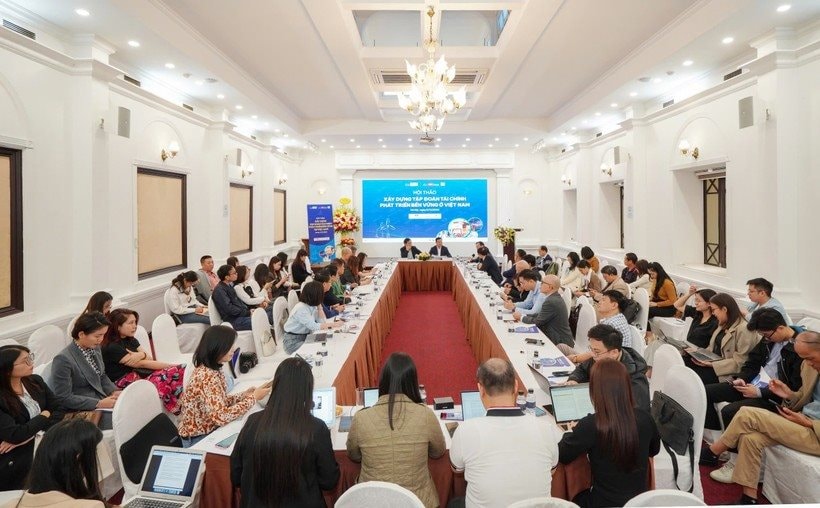
At the workshop, some experts also shared their views on the relatively weak position of Independent Board Members in banks.
Economist Nguyen Tri Hieu stated that most independent members on bank boards are currently “figureheads” due to institutional and structural reasons. Mr. Hieu observed that independent board members in many banks often serve as yes-men, rubber-stamping the decisions of the Chairman. In contrast, these independent members should represent the voice of minority shareholders.
Mr. Hieu cited the way board meetings are conducted in the US, where meeting minutes are meticulously recorded, detailing who proposed an idea, who supported it, and who opposed it. All opinions, whether in favor or against, are meticulously documented in the board minutes.
In contrast, many board meeting minutes in Vietnam follow a standard template from previous meetings. During the voting process, decisions are typically made unanimously, following the Chairman’s opinion.
“I have served on the boards of two banks,” said Mr. Hieu. “I witnessed them preparing meeting minutes in advance. At the end of the meeting, the secretary would print out the minutes for the members to review and sign. In the US, board members are not pressured to make important decisions within just 10 minutes; they are allowed one to two days to review the minutes at home and provide their opinions.”
Therefore, Mr. Hieu suggested that regulatory authorities should establish regulations regarding board meeting minutes and the responsibilities of independent board members.
“The State Bank should mandate that all resolutions of the Board of Directors include the opinions of independent board members in the minutes,” Mr. Hieu emphasized.
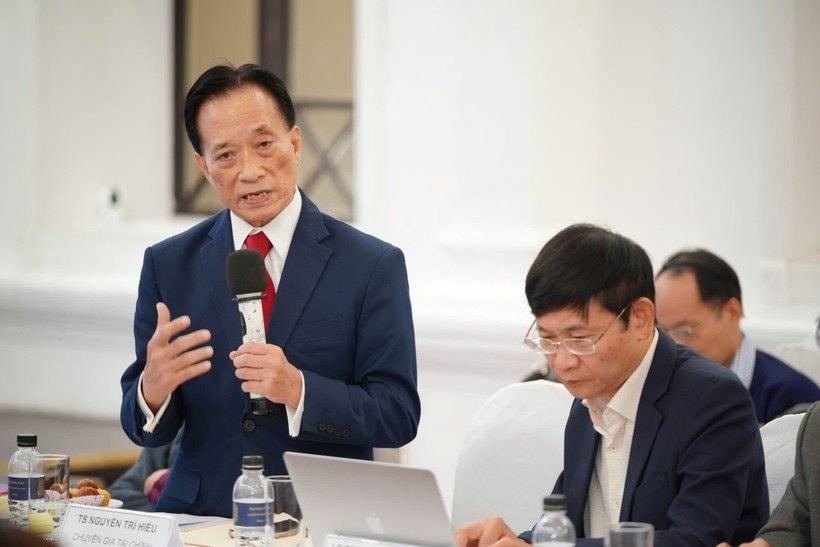
Dr. Nguyen Tri Hieu shared international experiences in bank management
Drawing from his personal experience, Mr. Pham Xuan Hoe, former Vice President of the Banking Strategy Institute and Vice Chairman and General Secretary of the Vietnam Finance and Leasing Association, expressed his sympathy for minority shareholders when some major shareholders dominated bank decisions.
According to Mr. Hoe, independent board members should represent the interests of minority shareholders. Therefore, the state needs to provide very specific guidance on the mechanism for the operation and role of independent board members.
On this matter, lawyer Truong Thanh Duc stated that the regulations are already comprehensive regarding the requirements for board meeting minutes and the duties of board members, clearly outlining the necessary content. However, in practice, the functioning of independent boards is a significant, complex issue influenced by multiple factors. Simultaneously, bank owners often act unilaterally, and independent board members tend to lack strong personalities.
“I am willing to serve as an independent board member and have the capability to argue and ensure the benefits of minority shareholders. Still, they (the banks) never invite me,” said Mr. Duc.
Meanwhile, with his experience as a board member of a large bank, Mr. Nguyen Van Hao, Vice President of the Vietnam Digital Communications Association, shared that he had effectively contributed to the bank, mainly in risk management.
According to Mr. Hao, to achieve transparency in risk management, two conditions must be met: compliance and integrity. The latter depends on the morality of those doing business in the bank.
Citing examples from abroad, Mr. Hao argued that Vietnam’s bank management laws lack clarity and transparency. “I strongly agree with the need for transparency in bank governance,” he said.
“Eximbank: Embracing a New Paradigm in Alignment with the Law on Credit Institutions 2024”
The case of Truong My Lan’s manipulation of SCB bank and the tragic loss of thousands of billions has led to a serious evaluation of large shareholders’ ownership in credit institutions. The new regulation on share ownership in the Law of Credit Institutions 2024, which came into effect on July 1st, 2024, marks a significant step forward in tightening control and preventing similar incidents from occurring again.
The New Rules: Unveiling the Latest Regulations Concerning Major Bank Shareholders
The banks are prohibited from extending new credit or additional credit to shareholders, or shareholders in a related group, who are currently holding shares beyond the ownership limit.
The Next Wave: Unveiling Vietnam’s Upcoming Millionaires and Billionaires
As of July 1st, shareholders owning 1% or more of a bank’s shares are required to disclose their personal information, as well as that of their relatives, including parents, children, and grandchildren. This information must be made public by the bank on their website within seven business days from the receipt of such disclosure.



